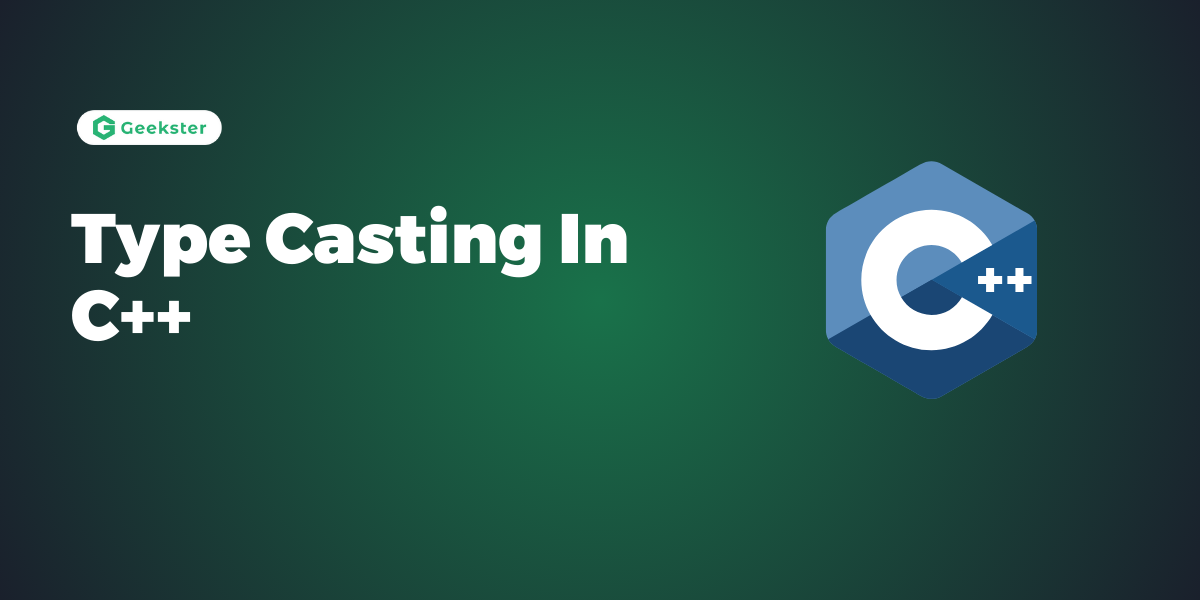Introduction
In C++ programming, type casting allows you to convert one data type into another. This can be useful when you need to perform operations on different data types or when you want to ensure that a variable holds the correct type of value. In this article, we will explore what type casting is, why it’s important, and how to use it in C++ with simple examples.
What is Type Casting?
Type casting is simply the process of changing one data type of a variable into another. The way of doing this can be either implicitly done by the compiler or it requires the programmer’s intervention explicitly. There are two types of type-casting in C++; implicit type casting and explicit type casting.
Implicit Type Casting
When the compiler converts one data type to another, the underlying casting is done automatically. This usually happens when you assign a value of one type to a variable of another type. Here is an example.
#include <iostream>
using namespace std;
int main() {
int myInt = 10;
double myDouble = myInt; // Implicit type casting from int to double
cout << "myDouble: " << myDouble << endl;
return 0;
}
In this example, the integer myInt is automatically converted to a double and assigned to myDouble.
Explicit Type Casting
Explicit type casting requires the programmer to specify the type conversion. This is also known as manual type casting. Here are a few ways to do explicit type casting in C++:
C-Style Casting
This is the traditional C-style way of casting:
#include <iostream>
using namespace std;
int main() {
double myDouble = 9.78;
int myInt = (int)myDouble; // Explicit type casting from double to int
cout << "myInt: " << myInt << endl;
return 0;
}
C++ Style Casting
C++ provides more specific casting operators such as static_cast, dynamic_cast, const_cast, and reinterpret_cast. Here’s how you use static_cast:
#include <iostream>
using namespace std;
int main() {
double myDouble = 9.78;
int myInt = static_cast<int>(myDouble); // Explicit type casting using static_cast
cout << "myInt: " << myInt << endl;
return 0;
}
When to Use Type Casting?
Type casting is useful in many situations, such as:
- Performing arithmetic operations between different data types.
- Ensuring a function receives the correct type of argument.
- Optimizing performance by converting data to a more suitable type.
Avoiding Type Casting Errors
While type casting is powerful, it can lead to errors if not used carefully. Here are some tips to avoid common pitfalls:
- Always check if the conversion makes sense (e.g., converting a large double to an int can result in loss of precision).
- Use C++ style casting operators for clarity and type safety.
- Be cautious with pointers and object-oriented type casting to avoid runtime errors.
Conclusion
Type casting in C++ is a valuable tool that helps you manage and convert data types effectively. Whether you’re using implicit or explicit casting, understanding how and when to use it will make your programs more robust and versatile. Practice with different examples to become comfortable with type casting, and remember to always consider the implications of your conversions. Happy coding!
Frequently Asked Question
Type casting is the process of converting a variable from one data type to another.
There are two types of casting in C++.
Implicit type casting happens automatically when the compiler converts one data type to another.

